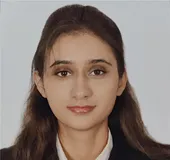
The ORF Foreign Policy Survey 2021, with a sample size of 2,307 respondents from the 18–35 age group, gives a unique insight into public awareness of international trade and institutional awareness amongst India’s youth. The survey team, in their research, found that they may be the first to seek opinion on issues related to globalisation and multilateralism. The results and the context are telling of what enters the public conscience and why.
There are several findings from the survey that reflect young India’s opinion of the government’s approach to international trade policy. Foremost amongst them is the attitude towards multilateralism. The results show that 76 percent of all respondents prefer multilateralism as the mode for engagement with our international partners over bilateral cooperation, which found only 24 percent support. Clearly, there is a generally positive outlook on international cooperation and its importance. This is even more striking if we take into consideration the context in which the survey was conducted, with criticism abounding of the World Health Organisation’s inadequacies in its handling of the pandemic and the World Trade Organisation (WTO) as it came to a near standstill, with the Appelate Body being unable to review any new notified appeals due to a lack of quorum since late 2020
There is greater awareness of larger multilateral groupings like the United Nations (UN) (72 percent) and the WTO (69 percent), than other, more niche groupings, like the G20 (52 percent), BRICS (52 percent), Shanghai Cooperation Organisation (SCO) (42 percent), et al.
This is further reflected in the responses to the survey question gauging pre-knowledge of various international and regional groupings. The results show that there is greater awareness of larger multilateral groupings like the United Nations (UN) (72 percent) and the WTO (69 percent), than other, more niche groupings, like the G20 (52 percent), BRICS (52 percent), Shanghai Cooperation Organisation (SCO) (42 percent), et al. An interesting trend is seen when the awareness data is disaggregated by the level of education. The survey shows that 87 percent of the respondents with postgraduate degrees were aware of the UN and its functions while 93 percent were aware of the WTO. Awareness of the UN is higher as we go down the literacy ladder and the reverse is true for the WTO. The likely implication is that given that the UN functions at a broader base as compared to the WTO, which has a very specialised function, its relevance for the youth population also changes based on the literacy gap. There is a need for the government to give more visibility to other groupings it is a member of. It should also promote a better institutional understanding of the other smaller groupings it actively participates in.
The level of education is directly correlated with the important space that international trade and trade policy occupies. The trend of greater knowledge of WTO versus the UN starts showing at the “up to class 12” education category used in the survey, and continues as such with a 3 to 5 percent gap in the knowledge of UN versus WTO.
The level of education is directly correlated with the important space that international trade and trade policy occupies. The trend of greater knowledge of WTO versus the UN starts showing at the “up to class 12” education category used in the survey, and continues as such with a 3 to 5 percent gap in the knowledge of UN versus WTO.
More fascinating is the data regarding the impact of globalisation. Sixty five percent of the respondents said that globalisation has been good for India in terms of educational opportunities overseas. Meanwhile, only 51 percent said that it had been good for India’s economy. Nearly 50 percent of the respondents said that globalisation had been good for Indian workers going abroad and for foreigners coming to India for work or stay. Clearly, there is a general understanding of the function of globalisation across all education levels. Significantly, all of the categories mentioned above, from movement for education to movement for work are elements of services trade. Whether the youth are making this connection or not may, perhaps, be an avenue for further research. It would also be useful to research if the youth are making the connection between globalisation and other sectors of the economy like manufacturing.
Another interesting trend seen is the response to the Indian withdrawal from the Regional Comprehensive Economic Partnership (RCEP). While 42 percent of respondents have supported the decision, 29 percent were opposed to it and a further 29 percent chose the ‘don’t know/ can’t say’ option. It would be interesting to see disaggregation here by education levels and occupation. This would open up further analysis on whether the acceptance or rejection of this decision is based on the sector of work and the possible impact of the RCEP on that sector of the economy. For instance, someone from the dairy sector may welcome the withdrawal because of the expected negative impact the RCEP would have on their sector.
This would open up further analysis on whether the acceptance or rejection of this decision is based on the sector of work and the possible impact of the RCEP on that sector of the economy.
Overall, the survey is a very important starting point to gauge the kind of foreign policy, and therefore, international trade policy issues that the populace is responding to. An in depth reading of the data would also help shape India’s Foreign Trade Policy which is currently being formulated for the period 2021–2026.
This article is based on the findings of the ‘ORF Foreign Policy Survey 2021: Young India and The World‘
The views expressed above belong to the author(s). ORF research and analyses now available on Telegram! Click here to access our curated content — blogs, longforms and interviews.




 PREV
PREV


